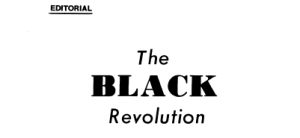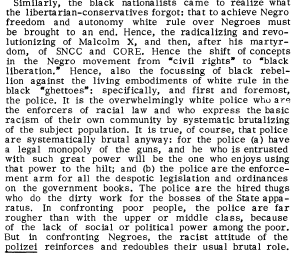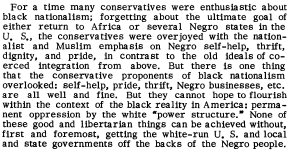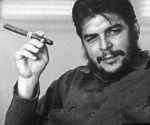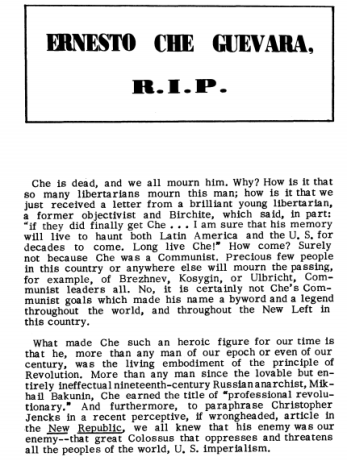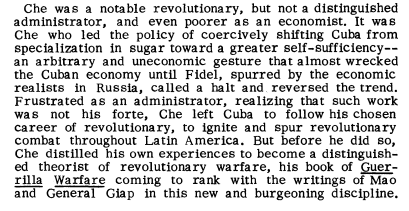Finally back to blogging about libertarianism. The next few entries will probably be reviewing the publication Left and Right: A Journal of Libertarian Thought. I chose this journal to review for three primary reasons. First, it is one of the few libertarian publications in the 1960s and gives an insight into how libertarians at the time viewed the radical social changes of the 60s, but it’s important to take note the radical changes to the Libertarian Party itself in the early 1980s (to a more right-wing position). At this point in the 1960s, “left-deviantionists” were more open in expressing their views. Second, it’s editor was Rothbard; therefore, giving it a clear link to the structures that later evolved into the official Libertarian Party. Third, the name of the journal itself harkens to the reality that the word “libertarian” can denote multiple positions which can be categorized as left or right in ever changing contexts.
The issue I’d like to bring attention to is Vol. 3 Number 3 or the same issue Rothbard gave his eulogy to Che. Two editorials in the issue covered the topic of flag burning and the black power movement. The obvious context is the numerous riots and protests sweeping the country at the time. As I have written before, many self-described libertarians openly supported active resistance to the government during this time, including rioting. Given the public discussion over overreaching police officers, race, and the recent shootings it seemed appropriate to review these editorials for the blog. I will review the flag desecration editorial for my next entry.
The editorial “The Black Revolution” seems to be a mixed bag. On one hand, I agree with the editors that the policy of integration was not a complete success, that African-Americans must uphold their own dignity if there is to be liberation, and that the Democratic Party will not be the means of said liberation.
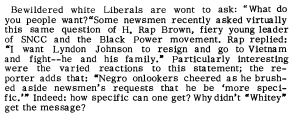
The opening line of the editorial, which reflects the reality that the U.S. government drafted thousands of African-Americans to fight a war that had no relevance to them.
Interestingly, it openly praises Malcolm X. I supposed this is appropriate considering the same issue has an article dedicated to Che.
In contrast, some of the language used reflects the racist bedrock that much of Anglo-Saxon stood upon in the 1960s and still stand upon. Conservative endorsements of ultra-black liberationism is often half-hearted and more along the lines of “how in the hell do we get rid of these people?”. The author simply ditches the entire notion of integration and argues that African-Americans should simply go back to Africa or try to start their own country. I never found either of these positions workable or even attractive.
One myth about the Civil Rights movement in the U.S. is that it was a top-down enterprise that did not enjoy grassroot support. After reading the Parting the Water series by Branch (a must read on the topic but it’s a pretty lengthy), I personally cannot see how anyone could conclude this. Intervention by the federal government was often accomplished by strategic application of civil disobedience non-violent direct action. Yes, federal Integration of public schools and universities was accomplished by the National Guard, but they only intervened in the first place due to the strategic brilliance of grassroots organizers that forced the situation. Without agitation, the federal government would have ignored the entire situation. At the end of the day, I would say that this article is historically important because the author acknowledges that the African-American community was being oppressed by a racist social order and had the right to use armed force against it. This seems to fly in the face of Rothbard’s later recommendation of a “right-wing populist program” in the early 1990s, in which he argues that the very notion of civil rights “tramples on the property rights of every American”.

